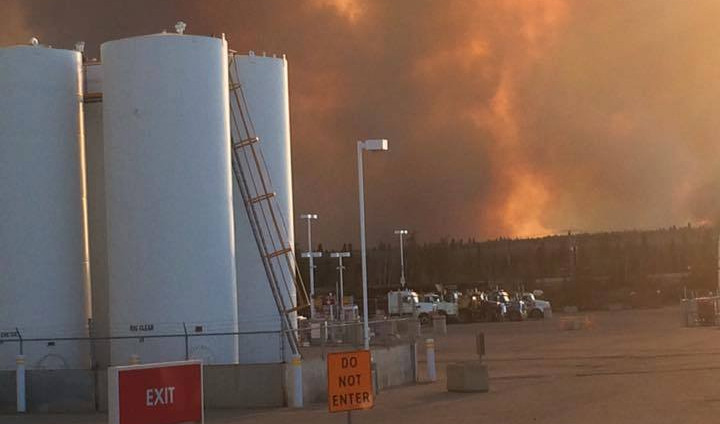Like this article? rabble is reader-supported journalism. Chip in to keep stories like these coming.
Here’s how you can help the evacuees of Fort McMurray.
At what point in the story arc of a tragedy is it “too soon” to try and make sense of what has happened?
As humans, we’re a curious species. Dangerously curious, even. When any kind of tragedy strikes, you’d be hard-pressed to find someone who’s first question wasn’t “why?”
While asking why is innate to human nature, it isn’t always appropriate. And sometimes, while it might be appropriate, the timing is off.
Because sharp analysis, like humour, requires a combination of perfect timing and an audience ready to hear your message.
If you’re a progressive, sharp analysis also requires nuance and humanity. As a society where the most powerful forces engage in dehumanizing activities so often that the worst elements of dehumanization are rendered mundane, re-igniting our humanity can be a collective struggle.
This is most obvious when the worlds we inhabit clash: our online world, where we engage as individuals, with people who are, for our relationship purposes, locationless versus our actual world: our bedrooms, our kitchens, our workplaces, our bus lines or our cars.
When something happens in our physical world, humanity is the first thing we reach for. Generosity. Kindness. Collective mourning.
When something happens in our online world, our swift responses risk clashing with “too soon”-ist criticisms, even if we have physical or emotional connections with what’s happening on the ground.
The differences in our locations are the differences between literally fleeing for your life and sitting at your computer intimating on the notion of “too soonism.” There is, frankly, no comparison.
Those of us who are safe must yield to those of us who are unsafe.
The problem, of course, is that not everyone is so thoughtful. We know how Shock Doctrine strategies have been devised at moments of extreme crisis to forward crushing neoliberal policies that will further hurt people who are already victimized.
Hell, just two days after a runaway train killed 47 people and wiped out the downtown of Lac-Mégantic, The Globe and Mail had no problem publishing an article that used the tragedy to declare that the deaths of 13 people was proof that we need to transport oil by pipeline.
The final deathcount that Diana Furchtgott-Roth referenced wasn’t even a third of who lost their lives that horrible night. It was so soon that no one yet knew.
Many of us, from a distance, see these tragedies and say: if it isn’t too soon for insurance companies to start licking their chops, or if it isn’t too soon for hedge fund gangsters to imagine how to profit from these tragedies, then surely it’s not too soon for me to remind you of the destruction climate change is wreaking on us all.
Or of the millions of climate refugees who are fleeing their own disasters and who we don’t help.
Or of the millions of refugees fleeing bombs that are being dropped by Western forces, whose homes have also vanished and whose families have perished.
If it’s never too soon for the business class, why is it too soon for the critics or the prophets?
The one per cent engages in ugly politics all the time and they set the rules. Progressive people cannot play by their rules. We need to remain rooted in reality: both our own realities, the realities of our family and friends and, above all, turn our empathy into action to reduce human suffering.
That means that rather than talking at people who are or who have just fled their communities, we wait. We send aid. We offer our homes. We volunteer. We write that yes, in the current crisis of a wildfire raging around Fort Mac, it’s too soon. Way too soon.
As governments continue to impose austerity on us, and as these kinds of disasters continue to happen (or probably accelerate), it’s clear that it will become more and more difficult for the state to respond to these disasters.
We have to image how to involve ourselves in relief efforts: how can we create networks or structures that help people in their most difficult times, especially once the first responders’ work is finished? What can the Left build that supports and enhances relief efforts, both short-term and long-term?
What are people calling for right now and how can we help?
It’s much too soon to ask anything more than this.
Like this article? rabble is reader-supported journalism. Chip in to keep stories like these coming.
Image: Facebook/Pete Potipcoe



